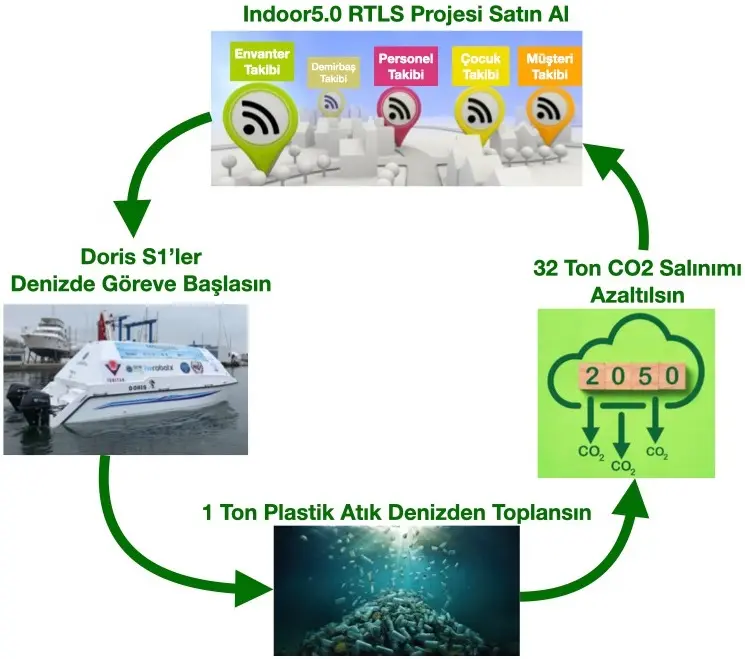KARBON EMİSYONU VE DENİZ KİRLİLİĞİ AZALTIMI İÇİN KAMPANYA
Daha çok döngüsellik, daha az karbon
Çevre üzerinde olumlu etki yaratmayı amaçlayan son kampanyamızı duyurmanın heyecanını yaşıyoruz.
100.000$ ve üzeri RTLS ürünlerimizden satın alan müşterilerimiz için, Marmara Denizi bölgesinden 1 ton plastik atık toplayacağız. Amacımız ton başına 20 milyon metrik ton mikroplastik kirliliğin denize girmesini önlemek ve 1 ton atığın toplanması için doğaya salınan 32 ton CO2'nin atmosfere salınımını engellemek.
100.000$ üzerine her RTLS projesi siparişiniz için denizden 1ton plastik atık, otonom deniz temizleme araçlarımız ile toplanacak.
Toplanacak plastik atık ton başına;
- 20 milyon mikro-plastik parçacığın denize karışmasının önüne geçilmesi
- 32 ton CO₂'nin doğaya salınımının önüne geçilmiş olması hedefleniyor.


